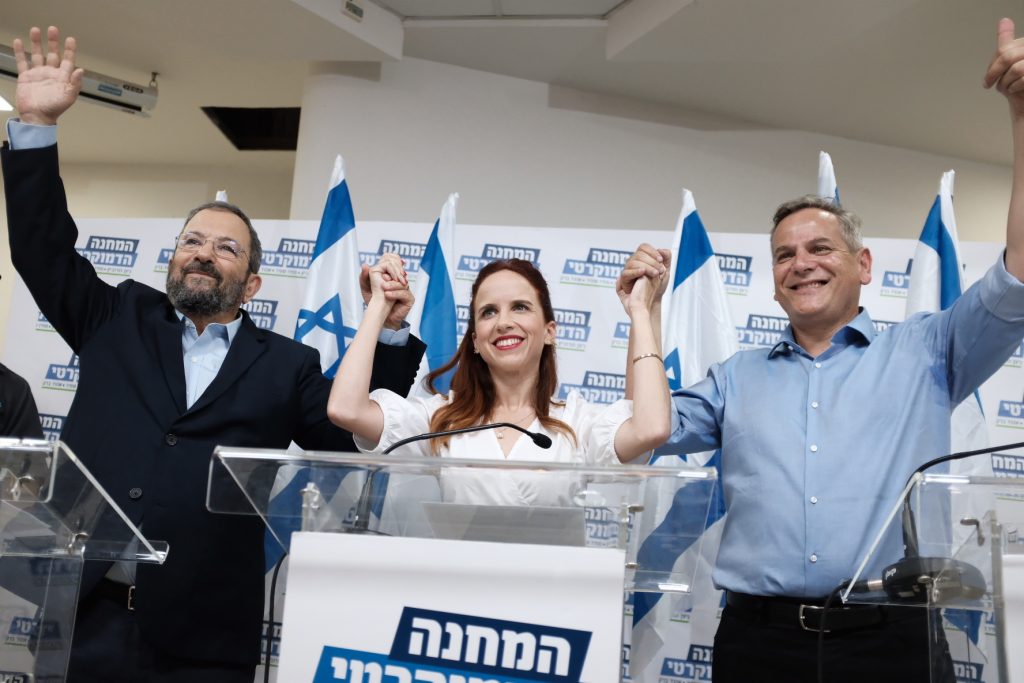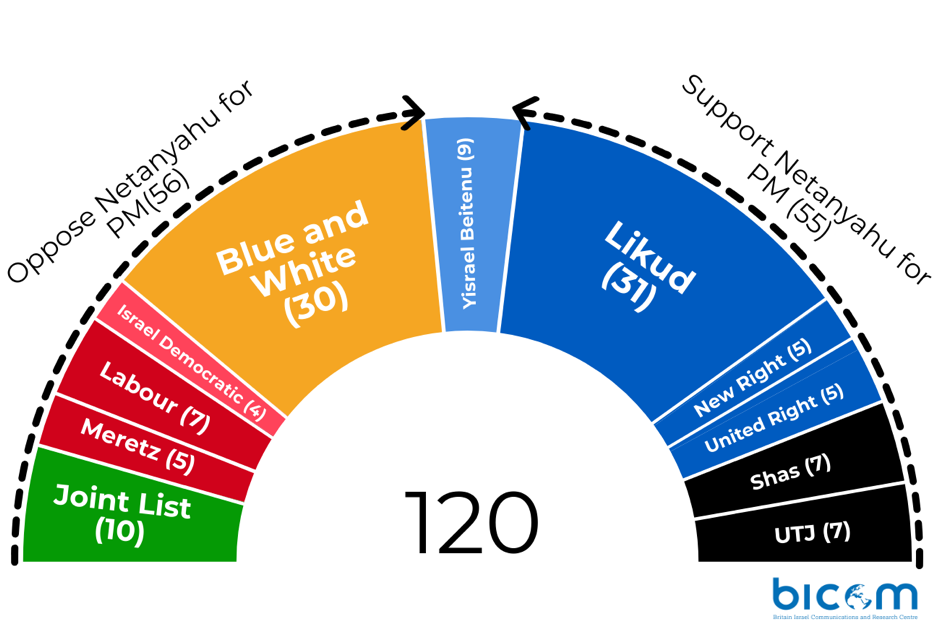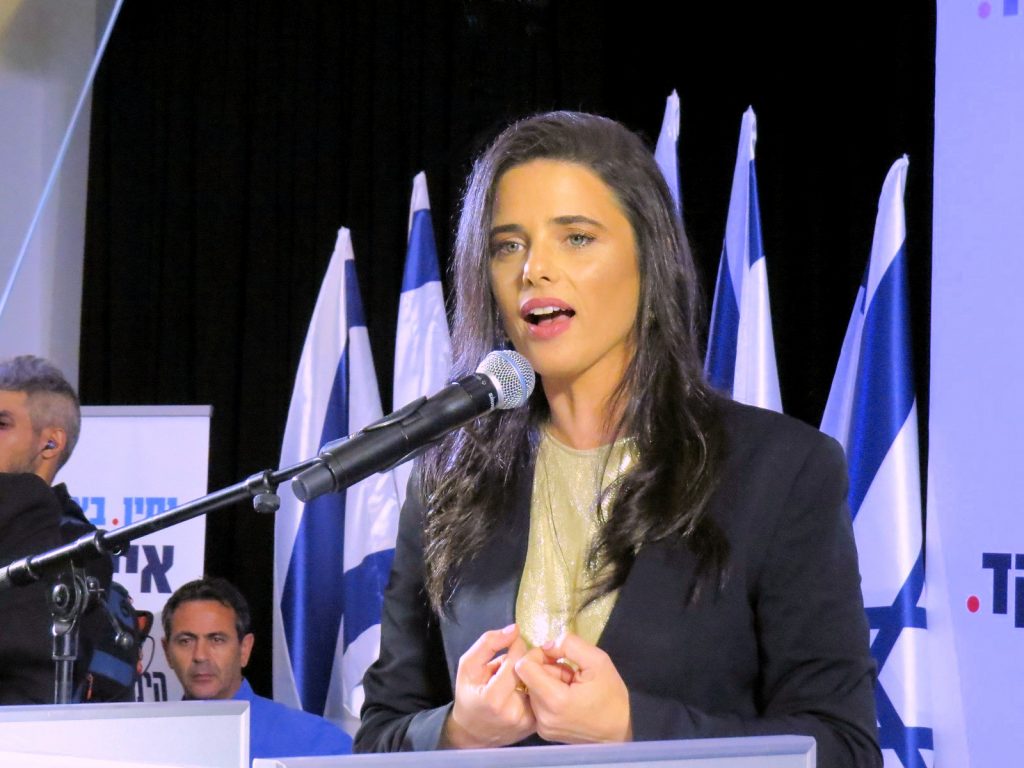Australia/Israel Review, Featured
Israel Election Watch
Jul 30, 2019 | AIJAC staff, BICOM

On May 29, the Israeli Knesset voted to dissolve itself, triggering a new election after Prime Minister Benjamin Netanyahu failed to form a governing coalition. Elections will take place on September 17, less than six months after the April 9 elections. Here is the latest on the Israeli campaign trail.
Getting to a 61 seat majority
The right-wing/ultra-Orthodox alliance supporting Prime Minister Netanyahu was broken up by the disagreement over ultra-Orthodox conscription. Yisrael Beitenu leader Avigdor Lieberman has vowed to support a ‘national-liberal’ unity government after the elections involving Netanyahu’s Likud and Blue and White without the ultra-Orthodox parties.
Current polls suggest that neither Netanyahu nor Blue and White leader Benny Gantz will likely have enough seats and allies to form a 61-seat majority. A national unity government is possible but unlikely as long as Netanyahu is Likud leader because Gantz has ruled out joining a government with Netanyahu while the latter is facing a corruption trial.

Aggregate of polls – July 3-18
New leaders for Labor and Meretz
The Israeli Labor party elected former Defence Minister Amir Peretz as its new leader after Avi Gabbay announced that he was not standing again. The Labour party suffered a historic blow in the April 9 election, winning just 6 seats, down from the 24 it won – as part of the Zionist Union alongside Tzipi Livni’s Hatnua party – in the 2015 election. Peretz received 47% of the primary vote, comfortably beating his two younger rivals Stav Shaffir and Itzik Shmuli.
Meretz chose journalist and former MK Nitzan Horowitz as its new party leader to replace Tamar Zandberg who led the party for just one year. In his victory speech, Horowitz called on everyone who had left Meretz in the last election for the centrist Blue and White party to return. He added: “Meretz is prepared for talks and cooperation based on our values. We are proud leftists. We need to form alliances with new groups and the heads of Arab and Druze society. Our way and values are the reason for our existence as a party. We have a historic responsibility to create a strong left.” Horowitz is now the first openly gay leader of a political party in Israel.
Mergers and acquisitions
Final lists of parties and candidates must be submitted to the Israeli Elections Central Committee by Aug. 1, and discussions are ongoing about potential mergers.
Meretz and Labour were at one point said to be close to a merger agreement and polls suggest the combined party could win two more seats than if they stood separately. However, Labor leader Peretz appeared to rule out such a merger out after announcing on July 18 that Labor would jointly with the social welfare-oriented Gesher (“bridge”) party of former Knesset Member Orli Levi-Abekasis, which failed to gain enough votes to enter the Knesset in April.
Following this, an alternative left of centre alliance, to be called the Democratic Camp, was announced on July 25. This new grouping unites Meretz with former Prime Minister Ehud Barak’s new Israel Democratic party and Stav Shaffir, a prominent young Labor MK who lost the recent Labor leadership ballot to Amir Peretz. She reportedly objected to Labor’s alliance with Gesher, prompting her defection. Meretz leader Nitzan Horowitz will be at the top of the party’s electoral list, followed by Shaffir. Barak, reportedly at his own insistence, is to take the 10th spot on the list, though some other members of his party are to appear higher.
The Democratic Camp alliance will prevent left-wing votes from being lost as they might have been if any of the constituent parties had failed to reach the electoral threshold of 3.25% of the vote, but its overall effect on the electoral campaign were still unclear at press time.
The New Right party – which narrowly failed to reach the electoral threshold in April – announced on July 21 that Ayelet Shaked, the former justice minister who was the party’s deputy leader, would take over leadership of the party from Naftali Bennett, who will become her deputy. Shaked and Bennett said they would seek to create “a large bloc with all the parties to the Right of the Likud.”

Ayelet Shaked: Leading a new right-wing grouping
Shaked is considered a major electoral asset and a poll by Walla news concluded that 31% of the general public and 36% of right-wing voters believed she should lead a united right-wing party. A Channel 12 poll predicted that a merged right-wing party led by Shaked could win 12 seats and become the third-largest party.
At press time, it was not clear how other right-wing parties, such as the United Right party, were reacting to Shaked’s call for unity under her leadership.
Rafi Peretz, the leader of the United Right party was severely criticised for saying in a TV interview in early July that he supported gay ‘conversion therapy’. He later backtracked from this claim.
The four Arab parties – who in April ran as two separate lists, Hadash-Taal (6 seats) and Raam-Balad (4 seats) – are still discussing whether or not they will form a Joint (Arab) List as they did in 2015, winning 13 seats in all.
On July 15, a joint press conference was cancelled after it became clear the leaders were unable to reach agreement about the list’s composition and designated places for representatives of Hadash, Taal, Raam, and Balad. Hadash leader Ayman Odeh said that: “There’s a disagreement about the faction itself: who is going to be the faction chairman; who is going to get appointed to all kinds of committees. Those are natural in politics. The important thing is that within a matter of days we need to form the Joint List.”






